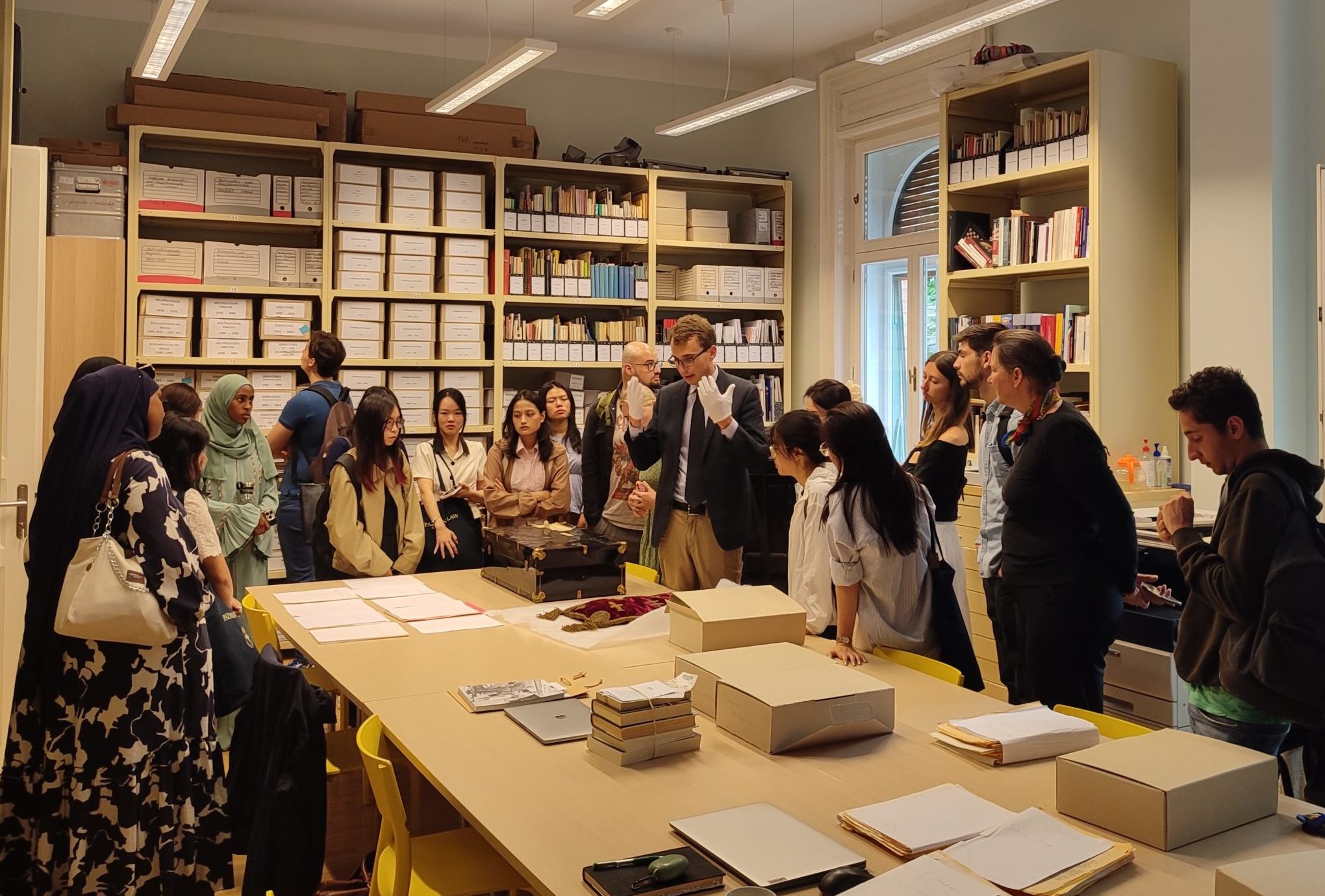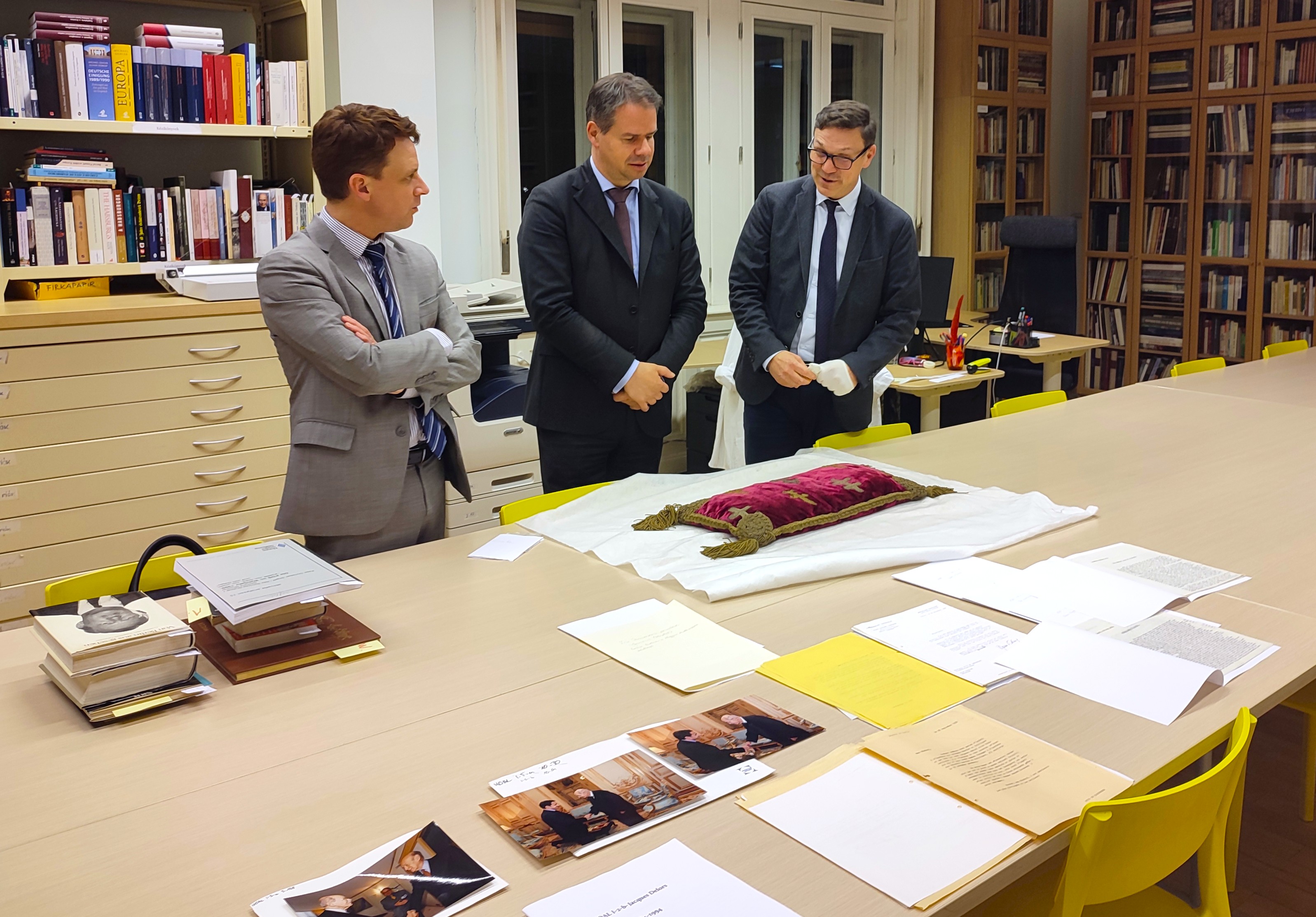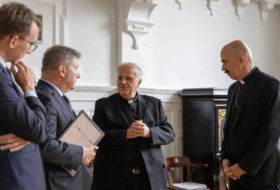Due to his dynastic roots and socialisation, linguistic diversity and multi-ethnic coexistence were a natural part of everyday life for Otto von Habsburg. This experience would become a defining element of his later political vision for Europe, in which such diversity was seen not as a threat but as an essential resource for integration. In light of this, the visit to the Otto von Habsburg Foundation was a fitting addition to the international programme of the Catholic university in Budapest entitled ‘Law and Language’.
Bence Kocsev provided the audience with an overview of the circumstances surrounding the establishment of the Foundation, its main activities and objectives, touching upon the mutually dependent and reflective relationship between the work in the collection and the cultivation of the intellectual heritage. He explained how the processing and presentation of historical documents can serve as a means for a contemporary reinterpretation of the ideological and political legacy of Otto von Habsburg, while fostering his intellectual heritage, which ought to offer new perspectives and relevance for historical and archival work.
In line with the theme of the Summer School, our colleague then detailed those aspects of our namesake’s public and political career that reveal his commitment to linguistic and cultural diversity. He highlighted that Otto von Habsburg’s position in the federalism-centralism debate, which has existed since the beginning of European integration, is illuminated by his belief that linguistic self-determination is essential for a sovereign community’s identity, self-image and self-expression. He also described how, as a former Crown Prince and Member of the European Parliament, Otto von Habsburg stood up for the rights of national minorities and nations deprived of their independence, especially in the Soviet-influenced countries of Central and Eastern Europe. During the presentation, it was also emphasised that Otto von Habsburg’s commitment to the rights of minorities was not only a moral duty, but also one of the most crucial tests of the credibility and viability of European democracy. In addition, he consistently spoke out in favour of preserving the purity of European languages and repeatedly criticised the “imperialism” of the English language, which he believed was leading to uniformity. In this spirit, he allied with the French Gaullist politician Maurice Druon, a former secretary-general of the French Academy and minister of culture, with whom he created an informal working group within the European Parliament aimed at popularising the use of the French language.
To conclude the visit, the students and their professors were given the opportunity to examine Otto von Habsburg’s correspondence with several well-known personalities, as well as some of the library’s special volumes and a few intriguing artefacts from our collection.


